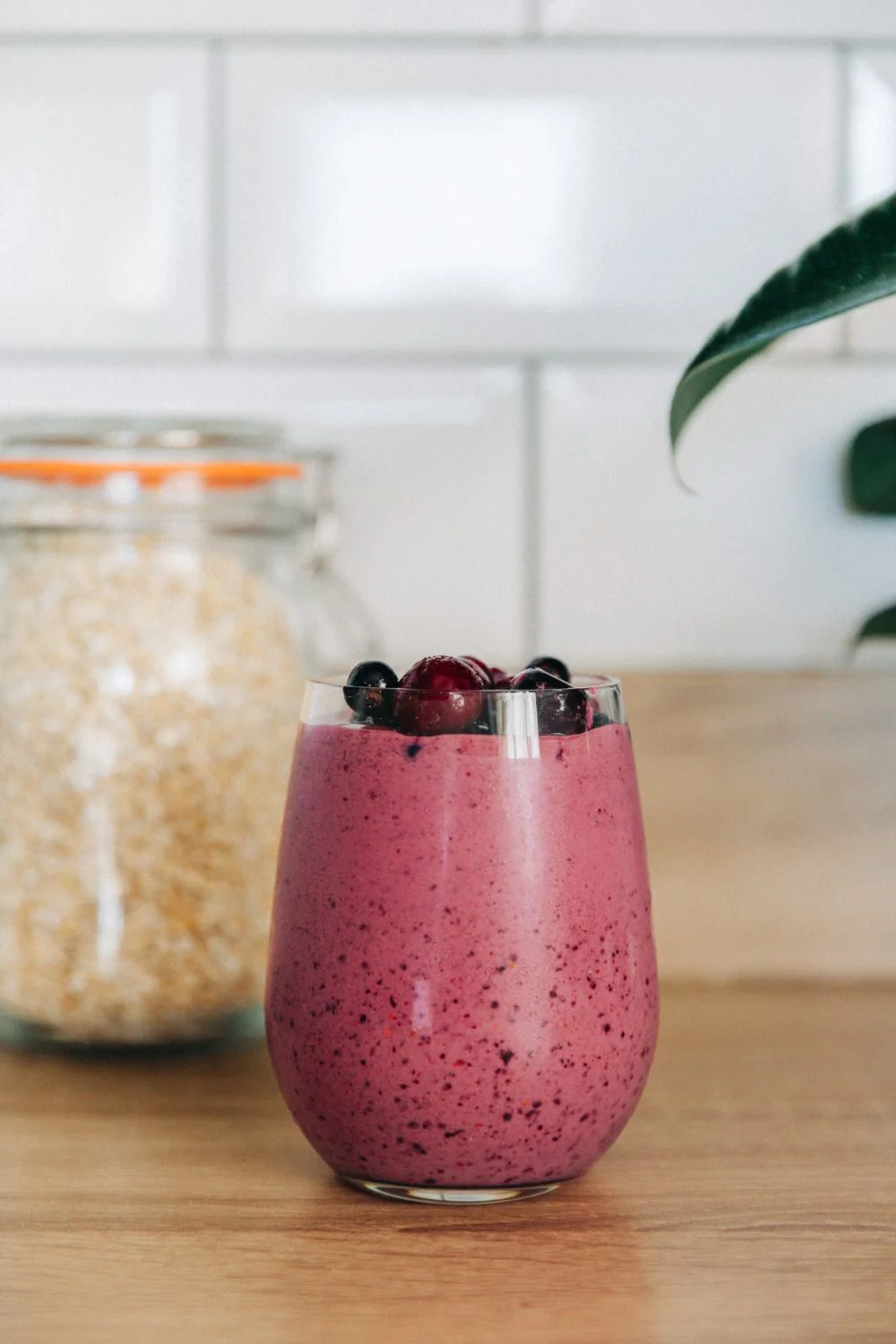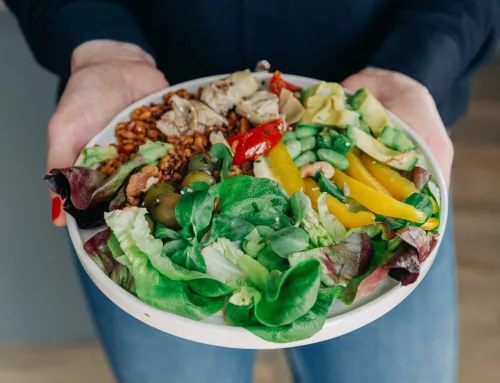Managing mealtimes with IBS can be challenging. Diet plays a significant role in influencing IBS symptoms and choosing the right breakfast can make a big difference in managing symptoms to help start your day the right way.
Common symptoms of IBS include abdominal pain, bloating, gas, nausea, and alternating diarrhea or constipation. While individual food triggers vary, evidence shows us that diets high in processed foods, refined sugars, alcohol, and low-quality fats may worsen IBS symptoms. An IBS-friendly diet typically involves choosing healthy, unprocessed foods, limiting alcohol and caffeine, maintaining adequate fluid intake, and adjusting fiber intake to manage diarrhea or constipation. While this blog focuses on dietary options for breakfast, exploring relaxation techniques including yoga, mindfulness, engaging in regular exercise, and experimenting with specific evidence-based probiotics might also contribute to alleviating symptoms.
Factors to consider when choosing your breakfast if you have IBS
Low fodmap options
The low FODMAP diet is widely recognized and extensively researched as an elimination diet for IBS. Essentially, it involves a diet low in fermentable fibres. FODMAPs are short-chain carbohydrates that are poorly absorbed and reach the large intestine, where bacteria ferment these sugars, often producing gas as a by-product. Excess gas in the large intestine can lead to bloating, cramping, excessive wind, and changes in bowel habits.
Common high-FODMAP foods include apples, onions, garlic, wheat, watermelon, asparagus, milk, and legumes such as baked beans. For more information about the low FODMAP diet, you can refer to a previous blog post here.
Low-FODMAP foods are less likely to trigger IBS symptoms as these foods are low in fermentable carbohydrates that can cause bloating, gas, and pain. Examples of low fodmap foods include eggs, porridge oats, strawberries and lactose free dairy products. While low FODMAP food options may alleviate symptoms, this diet is not meant to be permanent. It is a diet designed as a temporary measure to establish a personalized, sustainable diet that alleviates symptoms of IBS. Therefore should the diet be successful it is important to reintroduce high FODMAP foods to determine your exact triggers, and I strongly advise seeking guidance from a dietitian trained in FODMAPs.
Incorporate Soluble Fibre
Fibre is an essential component of a healthy diet, but individuals with IBS often struggle to handle high levels of insoluble fibre, commonly found in foods like bran. Instead, it’s advisable to prioritize soluble fibre-rich foods for breakfast, as these are generally easier on the digestive system. Some examples of soluble fibre breakfast sources include porridge oats and seeds such as chia seeds, and linseeds.
Soluble fibre provides numerous advantages for people struggling with IBS. It helps regulate bowel movements by increasing stool bulk, which can help alleviate symptoms of both diarrhoea and constipation. Furthermore, it acts as a prebiotic, supporting the growth of beneficial gut bacteria and contributing to a healthier gut microbiome.
Go low on the caffeine
Be mindful of your caffeine intake, as it can exacerbate diarrhoea, a common symptom of irritable bowel syndrome (IBS), and potentially trigger other IBS symptoms. If you suspect that caffeine affects your symptoms, try reducing your intake and/or consider switching to caffeine-free alternatives.
Breakfast suggestions that are tasty, nutritious, and IBS-friendly:
Blueberry and lemon pancakes
Overnight oats – enjoy with different topping such as berries, mixed seeds and nuts, strawberries and almonds, poached pears, chia seeds and coconut shavings
Porridge with linseeds: Jumbo porridge oats with milk of choice (cows milk, lactose-free, oat, soy, almond) topped with a handful of raspberries, sliced kiwi and a sprinkle of cinnamon
Seeded bread with nut butter and sliced banana: You can choose regular or wheat-free bread topped with peanut/almond butter and sliced unripe banana
Banana Smoothie: Blitz 200mls milk of choice (almond, lactose free, soy, oat or cows milk) with 100mls yogurt (cows milk, coconut or lactose free), 1 tablespoon peanut butter, pinch cinnamon, 1 unripe banana
Scrambled Eggs. Eggs are a great source of protein and generally well tolerated by those with IBS.
Greek yogurt: Top Greek yogurt or a lactose-free alternative with berries, chopped kiwi fruit, 1 tablespoon peanut butter or maple syrup

Tips to help manage your IBS and food
Aim to have regular meals and ensure you take time to eat and chew your food slowly. When we eat food, it triggers our gastrocolic reflex, a natural physiological response that can lead to a bowel movement. Establishing a regular eating schedule can be beneficial for individuals who experience irregular bowel movements.
Manage portion sizes. Large meals, especially those high in fat, can trigger symptoms as they take longer to digest. Instead, prioritize smaller, more frequent meals, starting with breakfast.
If you are experiencing symptoms of irritable bowel syndrome (IBS) such as bloating and excessive gas, it’s important to maintain regular meal times to help manage your condition. When you skip meals, you may be more likely to overeat at the next opportunity, which can lead to eating too quickly and not chewing your food properly. This can result in swallowing extra air, which can worsen your symptoms. Additionally, it’s crucial to be mindful of portion sizes, especially when it comes to high FODMAP foods. While small quantities of these foods may be manageable, larger portions can trigger bloating, gas, and possibly diarrhea. For example, consuming 2-3 pieces of fruit in one sitting may lead to discomfort due to increased fructose, resulting in symptoms like cramping and bloating. To effectively manage your symptoms, it’s recommended to spread out your fruit consumption throughout the day to help regulate your fructose intake.
Summary
Managing symptoms of IBS primarily involves replacing trigger foods with healthier alternatives that aid smooth digestion without discomfort.
Making dietary changes, such as following a low FODMAP diet, can significantly reduce symptoms. If you need support, feel free to contact me—I’m happy to help. In the meantime, you might want to try these IBS-friendly breakfast foods to start your day on the right note.









